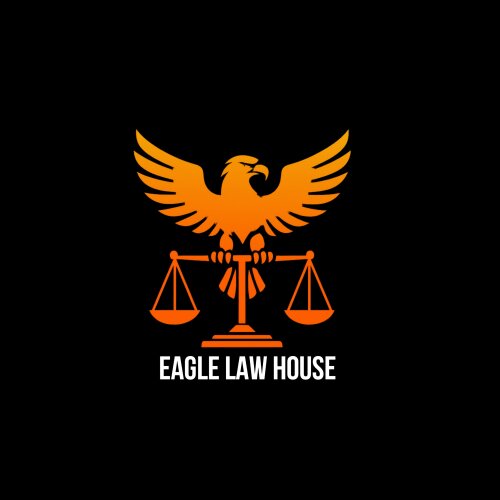Best Commercial Real Estate Lawyers in Nigeria
Share your needs with us, get contacted by law firms.
Free. Takes 2 min.
Free Guide to Hiring a Real Estate Lawyer
Or refine your search by selecting a city:
List of the best lawyers in Nigeria
Legal guides written by Adeola Oyinlade & Co:
- Procedure and Requirements for Work Permit and Visas in Nigeria
- The Step-By-Step Procedure of How to Apply for Microfinance Bank License Online in Nigeria
- How to Ensure the Smooth Recognition and Enforcement of Foreign Judgments in Nigeria
Nigeria Commercial Real Estate Legal Questions answered by Lawyers
Browse our 1 legal question about Commercial Real Estate in Nigeria and read the lawyer answers, or ask your own questions for free.
- Legal Documents Required in Real Estate Transactions to Verify Property Legitimacy
- As a buyer or agent, what are the necessary documents to request from the seller or the agent in charge of a property to ensure it's legitimate?
-
Lawyer answer by CO-dunni Law Solicitors
You would need the Deed of Assignment, approved survey document, evidence of payment of ground rent (for properties with C of O). You should give these documents to a Lawyer for verification. You cannot do it yourself. Contact us
Read full answer
About Commercial Real Estate Law in Nigeria
Commercial real estate in Nigeria involves legal aspects related to business and commercial properties, including transactions, leasing, zoning, property management, financing, and development. The sector is governed by a blend of statutory laws, customary laws, and judicial precedents. It plays a significant role in Nigeria’s economy, with commercial properties ranging from office spaces and shopping malls to industrial warehouses and hotels. Understanding commercial real estate law is crucial for anyone involved in buying, selling, or leasing commercial properties in Nigeria.
Why You May Need a Lawyer
Here are common situations where seeking legal assistance in commercial real estate might be essential:
- Negotiating lease agreements or resolving lease disputes.
- Conducting due diligence during property acquisition to ensure clear title and compliance.
- Handling complex financing arrangements and mortgages.
- Managing zoning and land use regulations and disputes.
- Facilitating mergers and acquisitions that involve real estate assets.
- Providing legal representation in property litigation cases.
- Drafting and reviewing contracts and agreements.
Local Laws Overview
Key aspects of commercial real estate laws in Nigeria include:
- Land Use Act: Governs land ownership and control, stipulating that all land belongs to the state and users must obtain a governor’s consent for transfers.
- Property and Conveyancing Law: This law regulates transactions and transfer of ownership in real estate, emphasizing the need for registration and documentation.
- Tenancy Law: Governs the relationship between landlords and tenants, outlining their rights and obligations.
- Zoning and Planning Regulations: Manage land use, restricting types of developments permitted in different areas.
- Environmental Laws: Address compliance with environmental standards and requirements during property development.
- Investment and Promotion Acts: Apply to foreign investments in real estate, often involving compliance with regulations set by the Nigerian Investment Promotion Commission.
Frequently Asked Questions
What is the role of the Land Use Act in Nigeria?
The Land Use Act centralizes the control of land, stating that all land is vested in the state for the benefit of all Nigerians. It requires obtaining the governor's consent for any land transaction, providing a legal framework for ownership and use.
Do I need a lawyer to lease commercial property?
Yes, engaging a lawyer is advisable to ensure that your lease agreement is legally sound and protects your interests. Lawyers provide guidance on compliance with leasing laws, negotiate terms, and help prevent or resolve disputes.
How can I verify the title of a commercial property?
Title verification involves conducting a thorough search at the appropriate land registry, reviewing all documentation related to the property's ownership history, and ensuring there are no encumbrances or unresolved legal issues.
What are common disputes in commercial real estate?
Disputes often arise over issues like breach of contract, incorrect property descriptions, boundary disagreements, zoning infringements, and landlord-tenant disagreements.
Can foreign investors purchase commercial real estate in Nigeria?
Yes, foreign investors can acquire commercial properties, but they must comply with regulations established by the Nigerian Investment Promotion Commission and obtain any necessary consents under the Land Use Act.
What environmental considerations should I be aware of?
Developers must meet environmental standards set by the National Environmental Standards and Regulations Enforcement Agency (NESREA), addressing impacts like pollution, waste management, and ecosystem disturbances.
How can zoning laws affect my commercial property plans?
Zoning laws determine permissible property uses in certain areas, potentially restricting the type of business activities your property can host. It's essential to verify zoning compliance before purchase or development.
What documentation is required for a commercial real estate transaction?
Key documents include the Certificate of Occupancy, Deeds of Assignment, survey plans, building plans, and any consent or approvals as required by law.
What steps are involved in the property registration process?
Property registration involves submitting necessary documents to the applicable land registry, paying requisite fees, and ensuring that all legal requirements are met for the proper recording of ownership.
Are there specific taxes on commercial real estate transactions?
Yes, real estate transactions are subject to taxes such as stamp duties, capital gains tax, and in some cases, Value Added Tax (VAT), depending on the nature and specifics of the transaction.
Additional Resources
For further information, consider these resources:
- The Nigerian Bar Association: Provides access to qualified real estate lawyers.
- The Estate Surveyors and Valuers Registration Board of Nigeria: Offers insights on valuation and property assessments.
- The Corporate Affairs Commission: Handles business registrations, often integral to property transactions.
- Nigerian Investment Promotion Commission: Assists foreign investors navigating regulatory requirements.
- State and Local Governments' Lands Bureaus: Useful for specific zoning, licensing, and permits relevant to real estate within their jurisdictions.
Next Steps
If you need legal assistance in commercial real estate, consider the following actions:
- Identify and consult with a real estate lawyer who has experience in Nigerian property law.
- Gather all relevant documents regarding your property or transaction, such as title deeds or lease agreements.
- Outline your specific concerns or objectives so that your lawyer can provide tailored advice and solutions.
- Explore alternative dispute resolution methods if facing a legal dispute to potentially save time and costs.
- Consider joining real estate associations or groups for networking and further advice from industry experts.
Lawzana helps you find the best lawyers and law firms in Nigeria through a curated and pre-screened list of qualified legal professionals. Our platform offers rankings and detailed profiles of attorneys and law firms, allowing you to compare based on practice areas, including Commercial Real Estate, experience, and client feedback.
Each profile includes a description of the firm's areas of practice, client reviews, team members and partners, year of establishment, spoken languages, office locations, contact information, social media presence, and any published articles or resources. Most firms on our platform speak English and are experienced in both local and international legal matters.
Get a quote from top-rated law firms in Nigeria — quickly, securely, and without unnecessary hassle.
Disclaimer:
The information provided on this page is for general informational purposes only and does not constitute legal advice. While we strive to ensure the accuracy and relevance of the content, legal information may change over time, and interpretations of the law can vary. You should always consult with a qualified legal professional for advice specific to your situation.
We disclaim all liability for actions taken or not taken based on the content of this page. If you believe any information is incorrect or outdated, please contact us, and we will review and update it where appropriate.
Browse commercial real estate law firms by city in Nigeria
Refine your search by selecting a city.

















